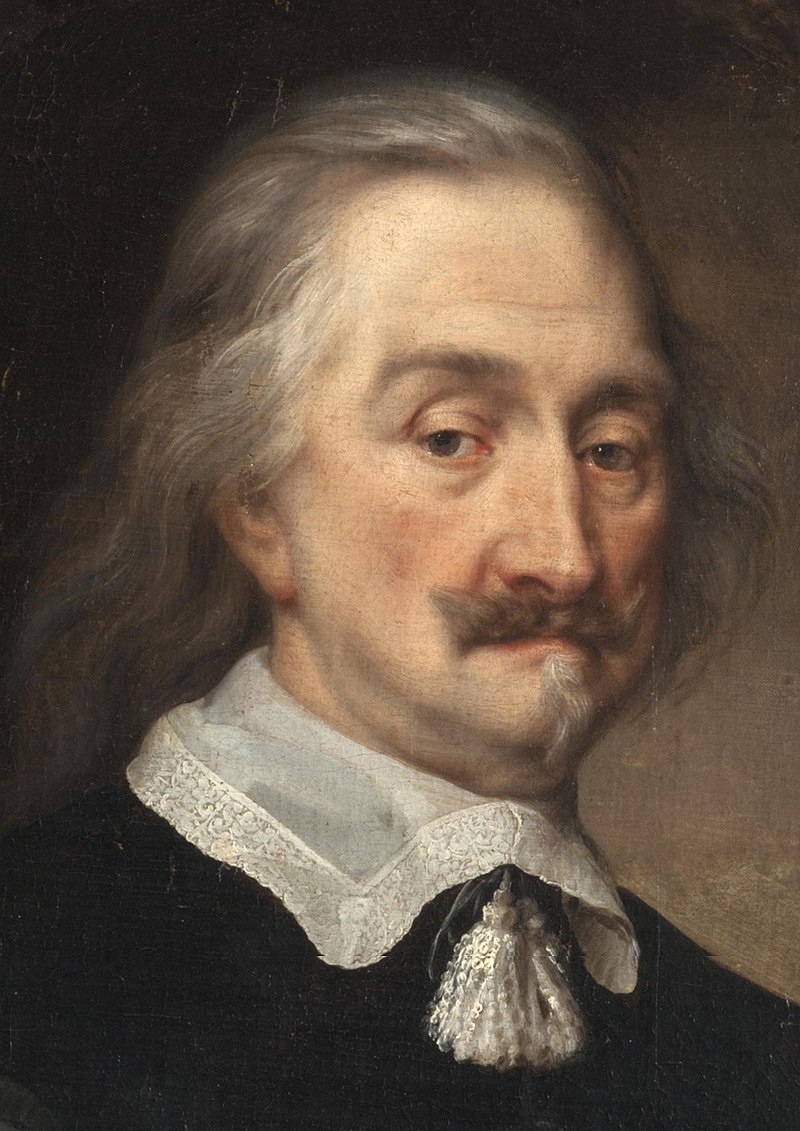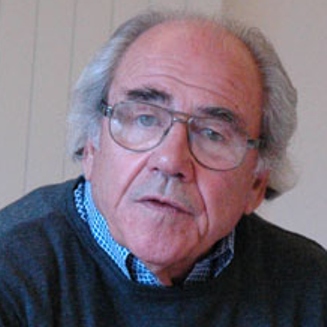Philosopher Bios
The Modernists

Hobbes (1588-1679) Thomas Hobbes was an English philosopher who many consider to be the founder of modern political philosophy. His most important contributions include the idea of the social contract, the natural equality of all men, the rights of the individual, and the legitimation of power. The social contract was the idea that individuals have sacrificed some personal freedoms for the state in order that their rulers protect their natural rights. He believed that all men are naturally equal, that legitimate power must be representative, and that people are free to do whatever the law does not specifically forbid.

Hume (1711-1776) David Hume was a Scottish philosopher. He believed that the self was simply a bundle of sensations. This means that we cannot know anything for certain because there has to be causal connection to everything, which is surprisingly difficult to prove. He was also famous for saying that reason is the slave of passion because we often use our reason to come to conclusions which we want. He is known to have mitigated skepticism. While we cannot know anything for certain, we must assume connections that we cannot prove exist.

Descartes (1596-1650) Renée Descartes was a French thinker whose ideas influenced many other philosophers and were very important in the modern period. He is often cited, in fact, as the first modern philosopher. He is most famous for saying “CogitoErgo Sum” (I think, therefore I am) and his philosophy began the school of rationalism. The followers of rationalism believed that our knowledge of the world is acquired by the use of reason. Thought Descartes’ first thoughts were skeptical, he actually did believe that there were many Truths that we can know and was a firm believer in God.

Locke (1632-1704) John Locke was a lover of common sense philosophy and was an empiricist. This meant that he thought our senses were important for gathering knowledge about the world. This school of thought was in direct contradiction to that of the rationalists. Because he put such emphasis on our senses, he did not believe that innate ideas exist. He spoke of primary qualities and secondary qualities. Primary qualities are those which are objective and simply are as they are. An example of this would be a math equation. but secondary qualities are subjective and are based upon the senses, such as taste. In terms of his political philosophy, Locke believed that neither the government nor religion should impose their ideas on people, but he did have universal beliefs about human rights and the role of the government.

Kant (1724-1804) Immanuel Kant was a German philosopher who believed that we can only apprehend that which our senses allow us to. He broke existence up into two parts: the phenomenal, and the noumenal. The phenomenal are things as they appear to us while the noumenal are things in and of themselves. Kant brought order to the world with his most famous categorical imperative which was based in ethics. This stated that we must act as if the maxim of our acts could be considered a universal good. Simply put, this means that when we do something wrong, we know it is wrong because we cannot imagine it to be right in all circumstances that we can imagine.

Hegel (1770-1831) Georg Hegel was born in Germany. He believed that reality is an ongoing process of development. He used the German word geist to describe a concept somewhere between mind and spirit which he believed was the ultimate essence of being and develops towards self awareness. The great hero for Hegel would be utilized by Geist which was the absolute spirit. Hegel also believed that we are all products of our times and that development comes from conflict. Therefore, if there is a conflict free society, there will be no development.

Spinoza (1632-1677) Baruch Spinoza was a Dutch philosopher who is of the rationalist school of thought. He believed that individuals are not free in the strictest sense because they are always affected by unforeseen forces. He also believed that mathematics applied to reality is the best way to achieve understanding of the world, so his ideas were based in logic and form. He believed in God and wrote a great many essays on philosophy pertaining to God. Unlike the postmodernists, he was less interested in the individual and thought that personal human problems are unimportant.

Leibniz (1646-1716) Gottfried Wilhelm Leibniz was a German philosopher also in the school of the rationalists. He is most well known for positing the difference between analytic and synthetic truths. Analytic truths are those which are true by virtue of meaning alone while synthetic truths are those which are true because of the world. He is also well known for coming up with the concept of sufficient reason. This states that for anything that is the case, there must be a reason for why it is so. He, like most of the modernists, believed in God and believed that God created the world in such a way that all things are able to coexist.

Rousseau (1712-1778) Jean-Jacques Rousseau was born in Switzerland and believed that humans are born good yet corrupted by society. He also believed that feeling should replace reason as our natural guide to the world. These ideas seem very postmodern, yet his other ideas are decidedly modern. He believed that society is a collective being with a will of its own and individuals must be subordinate to this societal will. These types of thoughts are similar to some of the later ideas of Carl Marx. He was religious like his contemporaries, yet he believed that awe and reverence should dominate religion rather than reason.
The Post-modernists

Nietzsche (1844-1900) While Friedrich Nietzsche is not a postmodernist himself, his ideas are so influential to the postmodernists that he belongs in this list. Among his many famous concepts, a few that the postmodernists picked up were the statement that “God is dead.” Nietzsche believed that man needed to reevaluate his values because they were based upon religion which was suppressive to the spirit.

Kierkegaard (1813-1855) Søren Kierkegaard was a Danish philosopher who is widely considered to be the first existentialist, which is why he is placed in this group. Existentialist ideas are those which question meaning on the whole and question our veryexistence. Kierkegaard is different from many of the philosophers of the postmodern era because he was a Christian existentialist were most of the secular existentialists of the 20th century were atheists. Kierkegaard believed in an emptying of the self called kenosis which was akin to the emptying of the self that Jesus experienced on the cross in the Christian faith.

Heidegger (1889-1976) Martin Heidegger was a German philosopher who follows as an example of a non-Christian existentialist. He did not believe that we are separate from the world but instead that we are an integral part of it. He believed that our existence from the very beginning is a shared and social one. He did not say that we can know whether or not anything has meaning, for without the belief in a higher being of some sort, this becomes difficult to answer. His ideas very much led into the post World War II absurdist movement where no meaning could be found, such as in the works of Jean Paul Satre and Samuel Beckett.

Barthes (1915-1980) While Roland Barthes had been a proclaimed structuralist, he left this field of thought for post structuralism when he wrote “The Death of the Author” in 1968. This essay stated that texts cannot have fixed meanings because the author’s mind is unreadable and the perspectives of the readers are always subjective as well as language itself.

Lacan (1901-1981) Jacques Lacan was a French psychoanalyst who introduced linguists into psychoanalytic theory which influenced post-structuralism. One of his most famous theories was that of the mirror stage which said that we first have knowledge of ourselves as something outside ourselves when we recognize ourselves in the mirror as toddlers. He had three stages of life: the imaginary, the symbolic, and the real. The imaginary stage is the one that we start out in when we are infants. All our needs are taken care of and we are always trying to return to this stage throughout our lives. It is a state of complete bliss where every desire is met. However, we don’t truly reach this until we die.

Wittgenstein (1889-1951) Ludwig Wittgenstein was a German philosopher who is most famous for his creation of the concept of the language games. He brought linguists into philosophy which became the focus of many philosophers throughout the 20th century. The language games concept says that when we are in different circumstances in our lives, we play different language games, meaning that we speak differently using different words, etc. Much of our lives are spent learning and practicing these language games. This concept could certainly be taken up by the postmodernist belief in the fragmented self because the different language games we play seem to point to different selves that we portray in different circumstances.

Baudrillard (1929-2007) Jean Budrillard was one of the French post-structuralist thinkers of the late 20th century who was interested in semiotics. He believed that meaning is brought about through systems of signs working together. The meaning of something is only understandable through its relation to other things. He also believed that the search for total knowledge will simply lead to disillusion.

Lyotard (1924-1998) Jean François Lyotard was the philosopher who first used the term postmodernism in a philosophical book. The name of his famous work, Postmodern Condition, was published in 1979. He posited postmodernism as very simply the disbelief in metanarratives which are grand, overarching narratives of the world. He also used the notion of Wittgenstein’s language games to make this point.

Derrida (1930-2004) Jacques Derrida was also a member of the French post-structuralist movement. He believed that things only have meaning based upon their connection within the systems of which they are apart. He also is famous for saying “there is nothing outside the text,” which many interpret to be a type of relativism, however it simply means that we are always in the process of interpreting.
Source: Magee, Bryan. The Story of Philosophy. Dorling Kindersley, 2010.